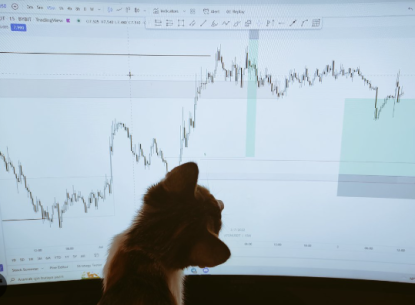
- February 6, 2026
- 1 second ago
TikTok's Favorite Pastry Chef Is Building an Empire — WSJ
By Sarah Medford | Photography by Nacho Alegre for WSJ. Magazine
Attack!" Cédric Grolet lets out a battle cry and grabs a tray of raspberries. Typically a quiet man in the kitchen, on this Monday — video day at Cédric Grolet Opéra, his immaculate cafe and bakery on Paris's Right Bank — the French pastry chef marshals his team into position with a shout.
For the next two hours, the eight staffers under his direction dart in and out of the room. While a camera is trained on Grolet, his ponytail tightly knotted and an arm-length tattoo snaking up inside his crisp white T-shirt, they pass him prebaked tart shells, vats of pistachio crème, fully-loaded piping bags of raspberry purée, an immersion blender the size of a jackhammer and other tools as he whips up a satiny confection called the Pistachio Raspberry Flower. He works methodically, whisking, smoothing and piping with an athlete's economy of motion.
When filming stops — 10 hours of kitchen prep that will be distilled into 58 seconds of iPhone footage — he douses a paper towel with a splash of Badoit and, bending down, uses it to wipe his Nikes.
Grolet, 37, has been a celebrated pastry chef for a decade. But only in the past two years or so has he thrown himself into highly orchestrated social-media performances. He first came into public view working under Alain Ducasse at Hôtel Le Meurice, a bastion of formal French cuisine overlooking the Tuileries gardens. In 2018 he opened a stand-alone pastry shop there; a year later he launched Cédric Grolet Opéra, a more casual independent venture with plush, '50s-style swivel chairs and walls of heavily veined marble. A partnership with London's Berkeley Hotel debuted in 2022, and a Singapore location — inside the Como Metropolitan hotel — opens this month. Grolet has three popular cookbooks, Fruit, Flowers and Opéra Pâtisserie, but it's his Instagram feed (8 million followers) and TikTok account (5.3 million) that have allowed him to break through to a wider audience.
None of his videos are especially demystifying. It would be nearly impossible to watch one and, say, head into your kitchen to make Strawberries and Blueberries in a Basket, a flaky brioche tart shell filled with alternating layers of pastry cream, fruit reductions and fresh berries, as Zoe Soldaña did when she turned up on video cooking with Grolet this summer. She's a game student and clearly no beginner in the kitchen, as she mimics his moves and a perfectly browned tart shell pops out of the pan on her first try.
One of his executive chefs, Yohann Caron, draws a distinction between the entertainment Grolet serves up and the instructional videos swarming the internet these days. "If I look at a video, I don't want the master class," he says. "I want the show. The show, the smile. Our
recipes are very long — the video is only 30 to 60 seconds."
While cooking lessons aren't the point of Grolet's videos, providing pleasure in the moment is. Midway through filming, he spots some kids in the crowd gathering outside the bakery and grabs his piping bag — a treat to dispense to the fans. Some hold iPhones aloft to capture him liberally squeezing pistachio cream into outstretched hands. When he steps outside again after filming wraps, he's carrying a heavy tray of samples in one hand and paper napkins in the other.
Grolet and his wife live nearby in a loft-style penthouse, the renovation of which he closely supervised, exposing the original ceiling beams and sloped walls under the building's mansard roof. A new marble kitchen island seats 10, and niches in the sand-colored bathroom are filled with souvenirs from the couple's far-flung travels. In a walk-in closet, well-ironed hoodies and T-shirts are as evenly lined up as the teeth of a comb; Grolet's pristine sneakers — mostly tricolor Nikes — live in a glass-front cabinet modeled on a champagne cooler. He works out with a trainer six or seven days a week.
"I appreciate his technique and his talent," says David Lebovitz, a former pastry chef at Chez Panisse, in Berkeley, California, and now a Paris-based food writer and online kibitzer about French cooking. Lebovitz sees Grolet as one of a growing number of chefs bucking a codified practice that dates back centuries in France and doesn't necessarily reward creativity. "The word 'formation' in French — as in formation culinaire — it's like becoming a bread baker," he says. "You're formed by the system. You learn the boundaries."
In the past decade, Lebovitz says, a younger generation of pastry chefs have been mixing things up, such as Christophe Michalak, retooling classic mille-feuilles and flans, or Sadaharu Aoki and Myriam Sabet, who insert flavors from Asia and the Middle East into eclairs, macarons and chocolates. Still other chefs have fallen under the hyperglycemic spell of supersize Cronuts, muffins and brookies from the U.S. "There's an audience for that, because young French people — they're not like, 'Oh, I want to get this little thing,' " Lebovitz says. "They want the huge chocolate chip cookie."
"It's been a tidal wave of change," he concludes. Grolet isn't revolutionizing as much as riding that wave of interest, he suggests, with more traditional techniques. "He's not really redefining French pastry."
A few days before the video shoot, Grolet is sitting at a back table at Opéra, a half-finished cappuccino within reach. His mood is reflective, and the refined look of his cup and saucer — traditional bisque porcelain by Revol, kicked up a notch in black — gets him going on the subject of presentation. More and more, Grolet says, he's thinking not about patisserie, but about elevating the enjoyment of it into something more lasting, and hopefully more meaningful.
During his time working for Ducasse and observing the trappings of his empire, Grolet learned the importance of building experience through setting and atmosphere — and also the smallest details, down to the magnetic closure on a pastry box. In 2018, he began working with Pierre Tachon, a French designer who had also worked with Ducasse. The collaboration has been fruitful — Grolet loves the design process and what Tachon has achieved — but also frustrating. "I'm jealous," he says. "Because my job, pastries, are so short term."
Grolet grew up in Auvergne, a rural region in central France that he calls "the most simple place on earth." His father was a truck driver and rarely at home; his mother was a hairstylist, doing her best to keep an eye on six children. Cédric, number three, spent a lot of time with his two grandfathers, one a "head-in-the-sky" artist, he says, the other a "maniac" chef running a small family hotel and restaurant.
The chef gave him some work after school and on weekends. He wasn't paid, but he had access to a foosball table at the hotel and started playing for money, earning a few francs here and there. In the fall, he would forage fruit or mushrooms in the woods to sell. Even at 7, Grolet says, "I was only thinking about business and becoming successful in life. It was my only goal — my parents had a hard life and were always hustling."
Around this time, his grandfather let him try a fingerful of vanilla ice cream from the hotel's ancient machine. If not quite a thunderclap "I want to be a pastry chef" moment, it came very close, he says. His brother went on to become a chef. "And me, only pastry," he says. "Because it's very special, it's very romantic, it's very precise."
At 14, Grolet left school for an apprenticeship and spent time in the kitchen of pâtissier Pascal Liotier. According to Liotier, Cédric had to be dragged out of the bakery every night. Among other things, he became a demon with the Saint-Honoré piping tip. It may look easy, but forcing a sweet blob of Chantilly cream or whipped ganache through the decorative nozzle in consistent, exacting strokes requires total focus and precise muscle control. "I used to tell my apprentices, 'If you can pipe with a Saint-Ho tip, you can pipe anything!' " Liotier writes in the foreword to Flowers, Grolet's latest book. "As with everything else he did, Cédric would never give up." Piping remains key to his work, partly out of respect for the foundations of his métier but mostly because he sees it as uniquely expressive.
Grolet's big break came in 2011, when he landed a pastry sous chef job at Le Meurice. Just before Ducasse took over the kitchen, in 2013, he was promoted to executive pastry chef, a role he still has today. Challenged to innovate, and hoping to shake things up in a dining room that was a bit of a stale mille-feuille itself, he came up with a startlingly simple concept: whole fruit, naked on a plate. But when the fork plunged in, concentric layers of cake, cream and silky fruit purée were revealed, a flavor bomb of heightened color, texture and taste. By wrapping the results in hypermodern culinary craft, Grolet took a tradition of trompe l'oeil fruit dating back to 12th century Sicily and made it new.
Ducasse loved it — though he suggested that Grolet cut the sugar content to give the fruit more of a voice. (Grolet did. Ducasse keeps asking.) Despite a 30-year age difference, the two men are close, and Ducasse has become a mentor. "I am a pastry chef, and I don't know how to set up companies," Grolet says. "He succeeded in it. He didn't say to me, 'Do this, do that,' but he gave me words and I cracked the code."
"It is very hard not to get lost," Grolet continues, spreading his tattooed fingers wide on the table. "We always want to go faster, with big productions, lots of shops, increase the sales — and today, being successful in creating companies like mine, it just doesn't exist." A few doors down from Cédric Grolet Opéra is the cocoa-colored storefront of pastry chef and chocolatier Pierre Hermé. Over the past two decades, Hermé has blanketed Paris with his 23 shops and cafes, which sell LP-size wheels of a lychee, raspberry and rose-flavored pastry called Ispahan alongside chocolates, jam, tea bags and other nonperishables. At Opéra, everything in the display case is made that morning and best eaten within a few hours. When the shop sells out, it closes.
Lately Grolet's team has been developing ideas for a product with a longer shelf life, one that can handle a plane ride or a FedEx journey, as Poilâne, an artisan baker in Paris, has accomplished with its sourdough loaves. His retail expansion plan is to go wide rather than deep, opening a handful of bakeries in capital cities where an audience for patisserie already exists, and evangelizing his gleeful, high-concept version of it to a new audience. Compared with opening a restaurant, where the dishes need to be perfectly cooked, precisely paced and promptly served, cloning a pastry kitchen is nothing, he says. The grunt work may be endless. But by the time the doors open, he says, "The pastries, they are already made."
Since opening Opéra, Grolet has built a team that numbers about 400. He tapped two of his trusted Paris chefs to lead the London and Singapore locations, and in recent years he's started teaching master classes in Europe and Asia, sharing time-tested French techniques with students at top cooking schools. Along the way he's been seeding relationships with future staffers. "Life is like a big cobweb," he says, drawing a circle in the air above his head. "The spider does not eat if you don't, let's say, make your web."
As a manager, Yohann Caron says, Grolet gives his staff enough latitude to develop their skills and be creative. Sometimes, the chef admits, he will kill an idea only to circle back to it later. "The French have a saying," he says. " 'Only stupid people don't change their mind.' "
He's also highly competitive. "And a bad loser," Caron says. "We have lots of competition — foosball, darts, pastry, knife work, baby food — " kitchen slang for the fruit reductions that are a Grolet constant.
"In pastry, the chef always wins," he says. "Foosball — it's still possible to win."




